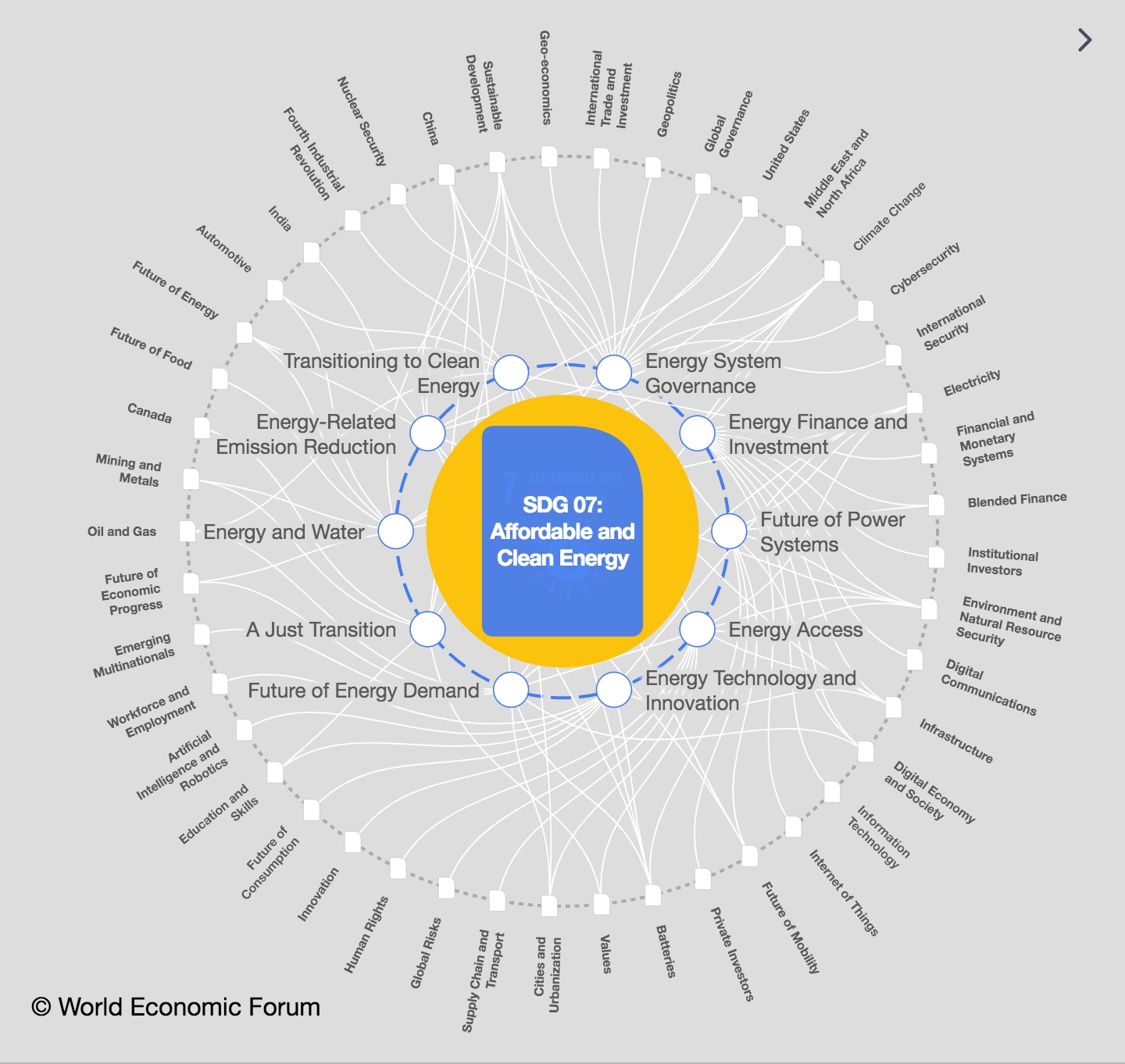The moment of truth for global energy transition is here

After COVID-19, the energy transition requires a systems approach, finds the ETI 2020. Image: World Economic Forum
Roberto Bocca
Head, Centre for Energy and Materials; Member of the Executive Committee, World Economic Forum- This year's ETI shows slow but sure progress, with more than 80% of the countries increasing their score on the index since 2015.
- The COVID-19 crisis has put a spotlight on vulnerabilities as the global energy system has been destabilized.
- There is an opportunity to build more resilience into the system so that it can weather a future that is likely to be turbulent.
Have you read?
The year 2020 was supposed to be a turning point in the global energy transition. The production and consumption of energy accounts for two-thirds of annual global anthropogenic emissions, making the energy transition central to delivering the promise of the Paris Agreement.
Countries were expected to take stock of their Nationally Determined Contributions to meeting the Paris Agreement’s goals and potentially strengthen their commitments to keeping global temperature increases to well below 2 degrees, with the ambition of reducing this figure to no more than 1.5 degrees. The year 2020 arrived with a sense of gathering momentum as the world entered its decade of delivery.
But over the course of the past few months, we have been up against a low-probability, high-impact catastrophe of global proportions. The speed, scale and intensity of the COVID-19 pandemic caught us off guard, necessitating the reallocation of resources and a collective conviction towards limiting the extent of the damage, and restoring normalcy to the economy and to society as soon as possible.
COVID-19 has proven to be a "black swan" event, threatening to undo the gains from the longest period of economic expansion in history.
The disruptions from COVID-19 have exposed vulnerabilities in the energy system. The short-term outlook for the energy transition is therefore at risk. The unprecedented speed and extent of the drop in energy demand, and the accompanying price volatilities and geopolitical implications have destabilized the global energy system.
The economic dimensions of energy transition mean that extreme price volatility has fiscal implications for countries and impacts the livelihoods of millions of energy sector workers. It also alters the competitiveness of renewable energy technologies and reduces incentives for energy efficiency. Resilience – not just in markets and infrastructure, but also in policy and cooperation mechanisms – will be critical for an accelerated recovery in energy transition.
There are signs of revival, as energy demand seems to be gradually picking up. However, it might be longer before the economy reclaims the lost ground. Given the uncertain economic outlook, purchase of automobiles and domestic appliances might be postponed, infrastructure development could be paused and non-essential industrial activities might take longer to restart.
What's the World Economic Forum doing about the transition to clean energy?
This decline in energy consumption has an immediate effect on the environment, as skies have cleared in even the most polluted areas of China and India. While this may be a blessing in disguise for the environmental sustainability agenda, it should not be mistaken for progress, and also demonstrates the cost we need to pay for an effective energy transition.

Along with a sustainable and thriving ecosystem for future generations, an effective energy transition is also essential for economic growth and social development. In an increasingly turbulent global paradigm, disruptions are the new normal, and energy transition roadmaps need to integrate robustness against these disruptions. Resilience of energy transition, in the long-term, implies a strong enabling environment that sees the system bouncing back from unforeseen or exogenous disruptions. This includes the presence of strong political commitment, stable capital markets and access to investment, a steady pipeline of innovations, modernization of infrastructure, training human capital for future energy systems, etc.
The World Economic Forum's Energy Transition Index (ETI) benchmarks countries on these fundamentals for energy transition, along with the performance of their energy system on economic growth, environmental sustainability, and energy access and security. From the recently completed analysis for this year's index, the evidence of gradual progress on energy transition is strong.

Since 2015, more than 80% of the countries have increased their score on the ETI. Encouragingly, the gap between emerging economies and the leading countries seems to be narrowing, but much work remains to be done.
”Only a handful of countries have been able to make steady annual progress on the ETI over the past six years, which demonstrates the complexity and challenges of energy transition. Improving levels of regulations and political commitment, capital and investment, and technology development have been critical to unlocking this progress globally.
When we finally manage to put the global tragedy of COVID-19 behind us, there may be some valuable lessons learned. The energy transition challenge is similar to the pandemic in terms of scale, cascading effects across social and economic systems, more severe for vulnerable populations, and the necessity of a decisive, timely and concerted response. Stakeholders need to be conscious that the fight against COVID-19 does not set us back in solving the critical socio-economic puzzle of global energy transition, otherwise the losses resulting from the virus will take an even greater toll on humanity.
Don't miss any update on this topic
Create a free account and access your personalized content collection with our latest publications and analyses.
License and Republishing
World Economic Forum articles may be republished in accordance with the Creative Commons Attribution-NonCommercial-NoDerivatives 4.0 International Public License, and in accordance with our Terms of Use.
The views expressed in this article are those of the author alone and not the World Economic Forum.
Stay up to date:
SDG 07: Affordable and Clean Energy
Related topics:
Forum Stories newsletter
Bringing you weekly curated insights and analysis on the global issues that matter.
More on Energy TransitionSee all
Roberto Bocca
November 17, 2025








